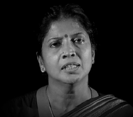From http://www.economist.com
 [May 19th 2011] MAY 19TH is the second anniversary of the Sri Lankan government’s announcement that its forces had killed Velupillai Prabhakaran, leader of the rebel Liberation Tigers of Tamil Eelam. It marked the government’s definitive victory in a bloody 26-year civil war—one, moreover, that analysts, including this newspaper, had for years argued could never be won. Yet in the end victory was so complete that peace already seems permanent. A book, published this week, by Gordon Weiss, the United Nations’ spokesman in Colombo in the final stages of the war, (“The Cage”*) is an excellent account of how that victory was won, and of the price paid for the present peace by Sri Lankans from the Sinhalese majority as well as the Tamil and Muslim minorities. Despite all the horrors around the world since then, many will recall the sense of outraged helplessness felt internationally in the final months of the war. Their beleaguered forces, having in effect taken hundreds of thousands of civilians hostage in a dwindling patch of northern Sri Lanka (“the cage”), were pounded relentlessly. So were the civilians.
[May 19th 2011] MAY 19TH is the second anniversary of the Sri Lankan government’s announcement that its forces had killed Velupillai Prabhakaran, leader of the rebel Liberation Tigers of Tamil Eelam. It marked the government’s definitive victory in a bloody 26-year civil war—one, moreover, that analysts, including this newspaper, had for years argued could never be won. Yet in the end victory was so complete that peace already seems permanent. A book, published this week, by Gordon Weiss, the United Nations’ spokesman in Colombo in the final stages of the war, (“The Cage”*) is an excellent account of how that victory was won, and of the price paid for the present peace by Sri Lankans from the Sinhalese majority as well as the Tamil and Muslim minorities. Despite all the horrors around the world since then, many will recall the sense of outraged helplessness felt internationally in the final months of the war. Their beleaguered forces, having in effect taken hundreds of thousands of civilians hostage in a dwindling patch of northern Sri Lanka (“the cage”), were pounded relentlessly. So were the civilians.
From http://transcurrents.com I went to sleep last week living down Havelock Road and woke up in the brand spanking spruced up renamed SSJ Mawatha. The Sinhalese are a minority within the city limits of Colombo. Those who are Buddhists among them are even a smaller minority. No one had consulted the residents of Havelock road about the change of name of their road. They had no voice. Within the last few months we had witnessed Dickman’s Road becoming Lester James Pieris Mawatha, Guildford Crescent to Premasiri Kemadasa Mawatha etc. The residents of these roads also had no choice on the matter. It was imposed from above. Under the present regime, “Sinhalisation” continues, not only in Jaffna, but also in Colombo. The masses, climbed into an array of vehicles, some parents had kids sitting in the boot of cars as they toured the country viewing the many Vesak spectacles and queuing up outside the generous dansala’s. It took me six hours to drive from Kandy to Colombo. As I observed the thousands of children, grannies and entire families taking their lives into their hands by travelling at the back of tractors, half trucks, etc the police looked the other way. The law is an Ass, they say. But here in Sri Lanka, not only the law, the entire law enforcement system, seem to be braying Asses. What amazed me was the site of adults, presumably parents, sitting inside a car, while their children were sitting inside the boot with their legs hanging out. They were travelling on the crowded Colombo-Negombo Road. Sri Lankans seemed unaware or unwilling to recognise the dangers to themselves and to others. For this great majority, Havelock Road becoming SSJ Mawatha was a cause for celebration. They saw nothing wrong in not consulting the residents of the street, where their majoritarian “identity” was being “imposed” without consultation.
I went to sleep last week living down Havelock Road and woke up in the brand spanking spruced up renamed SSJ Mawatha. The Sinhalese are a minority within the city limits of Colombo. Those who are Buddhists among them are even a smaller minority. No one had consulted the residents of Havelock road about the change of name of their road. They had no voice. Within the last few months we had witnessed Dickman’s Road becoming Lester James Pieris Mawatha, Guildford Crescent to Premasiri Kemadasa Mawatha etc. The residents of these roads also had no choice on the matter. It was imposed from above. Under the present regime, “Sinhalisation” continues, not only in Jaffna, but also in Colombo. The masses, climbed into an array of vehicles, some parents had kids sitting in the boot of cars as they toured the country viewing the many Vesak spectacles and queuing up outside the generous dansala’s. It took me six hours to drive from Kandy to Colombo. As I observed the thousands of children, grannies and entire families taking their lives into their hands by travelling at the back of tractors, half trucks, etc the police looked the other way. The law is an Ass, they say. But here in Sri Lanka, not only the law, the entire law enforcement system, seem to be braying Asses. What amazed me was the site of adults, presumably parents, sitting inside a car, while their children were sitting inside the boot with their legs hanging out. They were travelling on the crowded Colombo-Negombo Road. Sri Lankans seemed unaware or unwilling to recognise the dangers to themselves and to others. For this great majority, Havelock Road becoming SSJ Mawatha was a cause for celebration. They saw nothing wrong in not consulting the residents of the street, where their majoritarian “identity” was being “imposed” without consultation.
‘ஊடறு’ தளத்திலிருந்து மீள்பிரசுரம்! அறிமுகம் இன்று பல நாடுகளில் முறைசார்ந்த கல்வியில் பால்நிலை பற்றிய பாடத்திட்டத்தினைப் புகுத்த வேண்டும் என்கின்ற விழிப்புணர்வு உண்டாகியிருக்கின்றது. சிலவற்றில் வெவ்வேறு உருவங்களில் கல்வியில் பால்நிலை பற்றிய விளக்கம் புகுத்தப்பட்டும் வந்திருக்கின்றது. இலங்கையிலும் இந்த எண்ணக்கரு இப்பொழுது தேசியக் கல்வி நிறுவகத்தில் உருக்கொண்டு வருகின்றது. எந்தக் கல்விக் கொள்கை செயற்படுத்தப்பட்டாலும், எப்படியான சிறந்த புதிய பாடவிதானங்கள் அறிமுகப்படுத்தப்பட்டாலும், கடைசியில் பாடசாலை வகுப்புக்களில் இவற்றையெல்லாம் செயலில் வடிவமைப்பவர்கள் ஆசிரியர்களேயாகும். ஆசிரியர்களுக்குப் பூரண விளக்கம் இல்லாது எந்தக் கல்விக்கொள்கையையும் நாம் நடைமுறைப்படுத்த இயலாது. இதற்காகத்தான், பாடசாலைக் கல்வியில் பால்நிலை பற்றிய கருத்துக்களை உள்வாங்குவதன் தேவையையும், அதன் தாற்பரியங்களையும் எடுத்துக்கூற இந்தக் கட்டுரை விளைகிறது. பால்நிலை என்றால் என்ன என்பதிலிருந்து, அது எவ்வாறுஉருவாக்கப்பட்டது, அதன் விளைவுகள் என்ன, அதனை எவ்வாறு பாடசாலைக் கல்வியில் நாம் புகுத்தலாம் என்னும் பல விடயங்களை இது கையாளுகின்றது.
அறிமுகம் இன்று பல நாடுகளில் முறைசார்ந்த கல்வியில் பால்நிலை பற்றிய பாடத்திட்டத்தினைப் புகுத்த வேண்டும் என்கின்ற விழிப்புணர்வு உண்டாகியிருக்கின்றது. சிலவற்றில் வெவ்வேறு உருவங்களில் கல்வியில் பால்நிலை பற்றிய விளக்கம் புகுத்தப்பட்டும் வந்திருக்கின்றது. இலங்கையிலும் இந்த எண்ணக்கரு இப்பொழுது தேசியக் கல்வி நிறுவகத்தில் உருக்கொண்டு வருகின்றது. எந்தக் கல்விக் கொள்கை செயற்படுத்தப்பட்டாலும், எப்படியான சிறந்த புதிய பாடவிதானங்கள் அறிமுகப்படுத்தப்பட்டாலும், கடைசியில் பாடசாலை வகுப்புக்களில் இவற்றையெல்லாம் செயலில் வடிவமைப்பவர்கள் ஆசிரியர்களேயாகும். ஆசிரியர்களுக்குப் பூரண விளக்கம் இல்லாது எந்தக் கல்விக்கொள்கையையும் நாம் நடைமுறைப்படுத்த இயலாது. இதற்காகத்தான், பாடசாலைக் கல்வியில் பால்நிலை பற்றிய கருத்துக்களை உள்வாங்குவதன் தேவையையும், அதன் தாற்பரியங்களையும் எடுத்துக்கூற இந்தக் கட்டுரை விளைகிறது. பால்நிலை என்றால் என்ன என்பதிலிருந்து, அது எவ்வாறுஉருவாக்கப்பட்டது, அதன் விளைவுகள் என்ன, அதனை எவ்வாறு பாடசாலைக் கல்வியில் நாம் புகுத்தலாம் என்னும் பல விடயங்களை இது கையாளுகின்றது.
ஜூன் 12, 2011

 பொதுக்கூட்டம் – கலந்துரையாடல்: மத்திய இந்தியாவில் வாழும் பழங்குடி மக்கள் மீது இந்திய அரசு நடத்தி வரும் நிலத்துக்கான போர் குறித்து மனித நேயம் மிக்க எழுத்தாளர்கள் தங்கள் உணர்வு, அனுபவங்களை பகிர்ந்து கொள்கிறார்கள். அருந்ததி ராய் (Arundhati Roy), இந்திய எழுத்தாளர்; தோழர்களுடன் ஒரு பயணம்- Walking with the Comrades, உடைந்த குடியரசு (Broken Republic) நூல் ஆசிரியர். யேன் மிர்தால் (Jane Myrdal), சுவீடன் எழுத்தாளர், இந்தியா மீதொரு சிவப்பு நட்சத்திரம்- (Red Start over India) , நூல் ஆசிரியர். வசந்த இந்திரா மோகன் (Basantha Indra Mohan), இருபத்தியோராம் நூற்றாண்டில் பாட்டாளி வர்க்கப் புரட்சி- (Imperialism and Proletarian Revolution 21st Century), நேபாள நூல் ஆசிரியர்
பொதுக்கூட்டம் – கலந்துரையாடல்: மத்திய இந்தியாவில் வாழும் பழங்குடி மக்கள் மீது இந்திய அரசு நடத்தி வரும் நிலத்துக்கான போர் குறித்து மனித நேயம் மிக்க எழுத்தாளர்கள் தங்கள் உணர்வு, அனுபவங்களை பகிர்ந்து கொள்கிறார்கள். அருந்ததி ராய் (Arundhati Roy), இந்திய எழுத்தாளர்; தோழர்களுடன் ஒரு பயணம்- Walking with the Comrades, உடைந்த குடியரசு (Broken Republic) நூல் ஆசிரியர். யேன் மிர்தால் (Jane Myrdal), சுவீடன் எழுத்தாளர், இந்தியா மீதொரு சிவப்பு நட்சத்திரம்- (Red Start over India) , நூல் ஆசிரியர். வசந்த இந்திரா மோகன் (Basantha Indra Mohan), இருபத்தியோராம் நூற்றாண்டில் பாட்டாளி வர்க்கப் புரட்சி- (Imperialism and Proletarian Revolution 21st Century), நேபாள நூல் ஆசிரியர்



